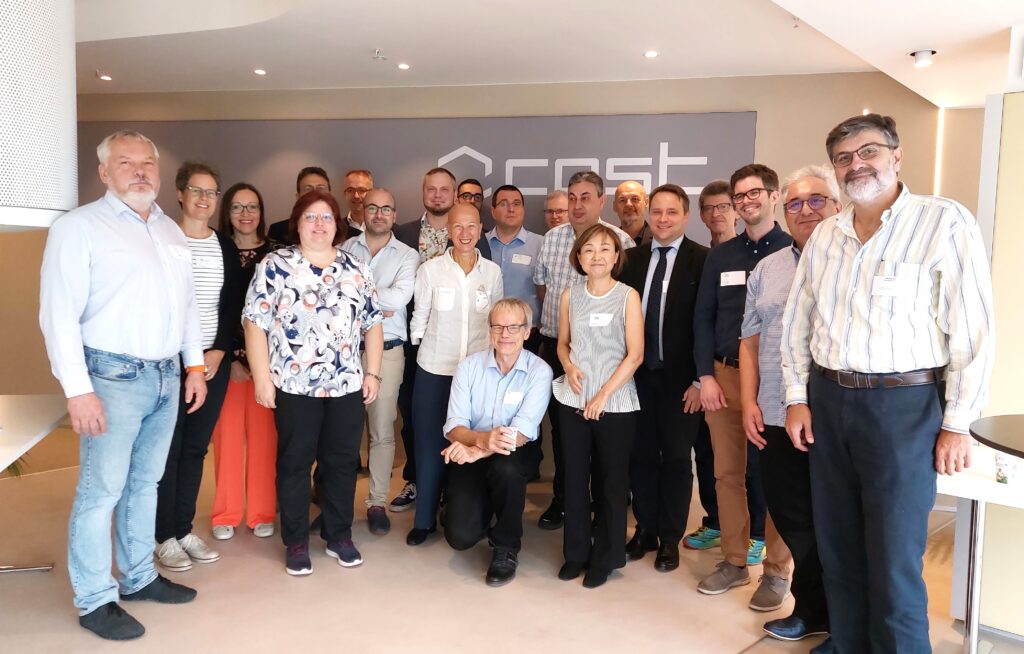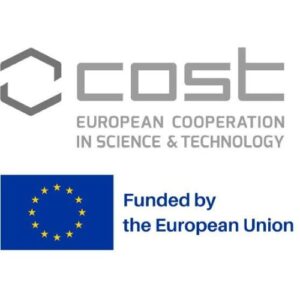Officially launched on 3 October 2023 in Brussels, LEMTA is contributing to the EU-MACE project, one of 70 projects selected for funding by COST this year.

Launch meeting with the main partners in Brussels on 3 October 2023
The COST programme
COST (European Cooperation in Science and Technology) is a funding body for research and innovation networks. It aims to bring together one or more communities around a scientific and/or technological theme, in a bottom-up approach, to develop networking activities (conferences, symposia, scientific missions, training schools, etc.) in line with the programme’s policy of excellence and inclusion.
The budgets are essentially dedicated to running a network, and are often stepping stones towards setting up a consortium to respond to European calls for proposals.
The EU-MACE project
Coordinated by the CEA (Saclay), the EU-MACE project brings together 37 partners from 18 countries. The core of the consortium is made up of colleagues from the AMPEA Joint Programmes of the European Energy Research Alliance (EERA).
Within this framework, David Lacroix (Energy Transport in Materials, Interfaces and Nanostructures team at LEMTA) represents several laboratories in the EMPP, M4 and CPM clusters at the Université de Lorraine; he is also coordinating the training part of the project.
The idea behind the project is to bring together a number of laboratories and research institutes working on the development of materials and technologies for the energy transition. Within this framework, so-called “acceleration” platforms combine different scientific approaches combining materials synthesis, characterisation of their properties and modelling. The aim of these platforms, known as MAPs (Material Acceleration Platforms), is to encourage the emergence of new technologies that are cleaner, more efficient and more virtuous in terms of the use of resources.
The project is made up of different work programmes. Three of them concern the development of collaboration and knowledge-sharing networks on reference materials:
Perovskites (applications in photovoltaics, fuel cells, membranes for H2 separation, etc.)
New metal alloys (applications in renewable energies and next-generation nuclear power)
Multi-functional” materials (polymers, organometallic structures, complex fluids) and “interfaces”.
Two other programmes are also planned. The first involves training students, doctoral candidates and young researchers in these new technologies. In addition, the development of an ERASMUS Mundus Masters project linked to these research themes is under consideration. Finally, the last work programme aims to disseminate to society the research and science developed as part of the COST project.
Official summary:
Materials have played a decisive role in almost every disruptive technology in our society’s industrial history. Faced with the current climate, geopolitical and humanitarian crisis, many international and regional bodies (political, industrial and scientific) are recognising the importance of a strong innovation ecosystem in the field of materials to successfully complete the transition to clean energy. As a result, autonomous laboratories (MAPs – materials acceleration platforms) have been set up at institutional, regional and international levels. MAPs integrate combinatorial synthesis, high-throughput characterisation, automated analysis and machine learning to accelerate the discovery and optimisation of advanced materials. Although these platforms are proving effective in producing advanced materials with targeted functionalities and physical properties, there is still considerable room for improvement. Rationalising the integration of materials into components and into safe, durable products is one example of the challenges that need to be overcome to implement disruptive technology. Another challenge is the geographical concentration of MAPs, which in practice excludes a large number of research laboratories and technology companies in Europe capable of contributing to and benefiting from these platforms.
In addition, the next generation of materials scientists must acquire new skills to adapt to such a systems and automated approach in their future research and development activities. In this context, EU-MACE will provide an ecosystem for the accelerated development of materials at the user level, bringing together researchers and industrial partners with cutting-edge digital and hardware skills. These, combined with market and societal drivers, will accelerate the development of new materials. Our inclusive and systemic approach will lay the foundations for a future centre of excellence for advanced functional materials to facilitate the transition to a united and stronger EU.
